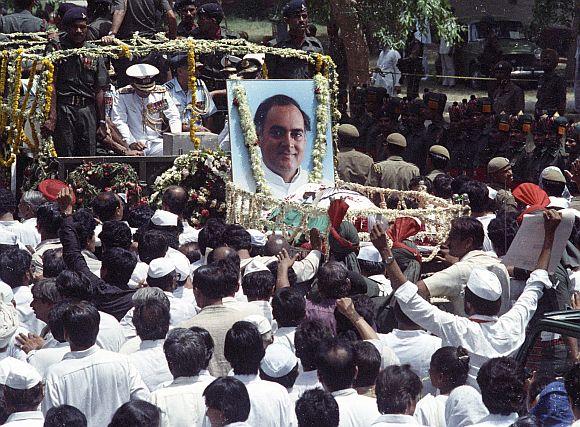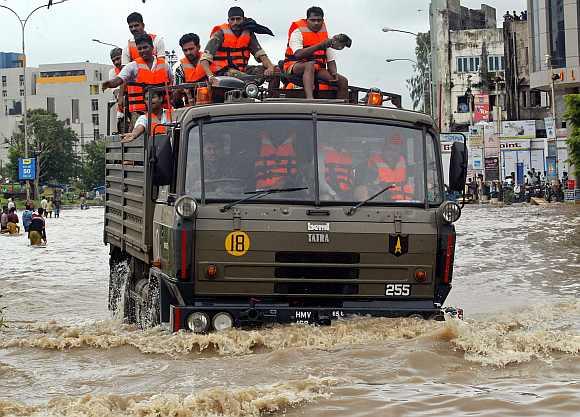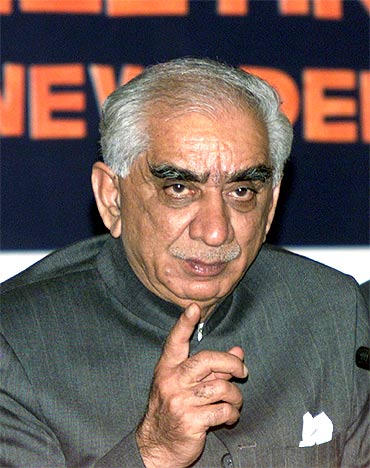 | « Back to article | Print this article |
Why the Bofors scandal CANNOT be forgotten
To many who remember the politics of the late 1980s, this is a worryingly familiar moment for India. The two periods have several common features: a rudderless government, an insurgent anti-corruption movement, and weakness on the external economic front.
The sudden recurrence in the national conversation of the totemic issue of those times, the quarter-century-old Bofors kickback scandal, is thus almost fortuitous. It is partly a reminder of how little some things have changed --and how high are the stakes, still, in the reform of defence procurement and of domestic oversight of offshore accounts.
It should, however, also serve as a reminder of how much the world has changed in its attitude to these problems, and how altered India's relative power is -- giving it tools to address these issues that it did not have in the 1980s.
Parliament has debated the continuing salience of the issue, provoked by a recent interview, published on thehoot.org, of the Swedish whistleblower Sten Lindstrom in which he tells the reporter Chitra Subramaniam that he believed that there was no evidence that former prime minister Rajiv Gandhi took a bribe, although Gandhi apparently allowed a cover-up.
Click on NEXT for more...
Why the Bofors scandal CANNOT be forgotten
He also spoke about the unwillingness of political authorities to make real efforts to uncover the bribe recipients, either through statements or through tracing offshore transactions.
Bharatiya Janata Party Member of Jaswant Singh, speaking in the Lok Sabha, said that "In matters of corruption, there is no closure", a direct response to the Congress party's preferred approach -- that the 25-year-old scandal be quietly buried.
Whether or not the specific case of Bofors can be legally proceeded on now, given the various investigative failures and court judgments of the past decade and a half, Singh is right on fundamentals. The essential issues that Bofors raised are still salient.
India's defence procurement is insufficiently transparent, and open to misuse by influence peddlers. And India is still not proactive enough in chasing down those using offshore accounts to bypass Indian law.
Click on NEXT for more...
Why the Bofors scandal CANNOT be forgotten
The reform of defence procurement is overdue, as the recent Tatra case has shown. Excessive discretion must be ended, and agents should be encouraged to come overground and make their lobbying efforts more open to scrutiny -- since ending lobbying itself might be too tall an order.
The government must also move more swiftly on making illegal money transfers and accounts in other countries available to scrutiny by law enforcement -- the crucial roadblock in the Bofors investigation.
It has so far claimed that the confidentiality clauses in its tax treaties with several low-tax jurisdictions do not allow even the Enforcement Directorate access to information those countries might pass to India.
Click on NEXT for more...
Why the Bofors scandal CANNOT be forgotten
This reticence must end. If other countries, like the United States, could gain access to such information, there is no reason why India cannot achieve the same.
The global current in favour of increased disclosure combines with India's greater economic weight to make this possible. Indian enforcement must build credibility.
As Singh said, "The storm of Bofors refuses to subside and the guns continue to blaze." Until the lessons of the episode that transformed its politics and forever ended Congress hegemony are learnt, the scandal will not, in any way, be a closed chapter.
Click on NEXT for more...
TOP photo features of the week
Click on MORE to see another set of PHOTO features...





